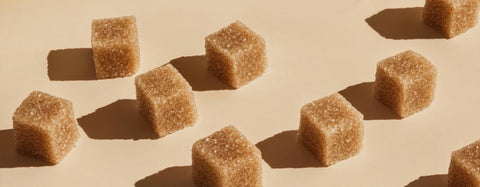
Sweeteners are everywhere—from your morning coffee to your favorite protein shake. But not all sweeteners are created equal. At Miils, we’re dedicated to crafting products that taste amazing while staying true to our commitment to clean, natural ingredients. That’s why we chose monk fruit extract as our sweetener of choice. But how does it stack up against other popular sugar alternatives like allulose and erythritol? Let’s break it down.
Meet the Sweeteners
When it comes to sugar alternatives, not all options are created equal. Let’s take a closer look at three popular sweeteners—allulose, erythritol, and monk fruit extract—and how they compare.
Allulose is a rare sugar found naturally in small amounts in fruits like figs and raisins. It mimics the taste of sugar remarkably well without the calories, as it isn’t metabolized by the body in the same way. While it has the benefit of being virtually calorie-free and not affecting blood sugar levels, allulose can sometimes cause digestive discomfort, such as bloating, when consumed in large amounts. Additionally, it’s a newer player in the sweetener world, meaning its long-term effects aren’t as well studied as some alternatives.
Erythritol, on the other hand, is a sugar alcohol naturally present in fruits like melons and grapes but is often manufactured for commercial use. It’s about 70% as sweet as sugar and provides zero calories, making it a common choice for calorie-conscious consumers. Erythritol has the advantage of being tooth-friendly and not raising blood sugar, but it comes with its own drawbacks. Many people notice a cooling aftertaste, which can alter the flavor of food and beverages. In larger quantities, it can also lead to digestive discomfort, such as bloating or gas.
Finally, there’s monk fruit extract, a natural sweetener derived from the monk fruit, also known as Luo Han Guo. This sweetener stands out for being 100–250 times sweeter than sugar, thanks to compounds called mogrosides. It’s calorie-free, doesn’t impact blood sugar levels, and is entirely natural. Monk fruit is also widely praised for its clean, pleasant taste, which blends seamlessly with other flavors. While it is significantly more expensive than some alternatives due to its natural sourcing, monk fruit offers a combination of benefits that make it hard to beat.
Why Miils Chose Monk Fruit
At MIILS, we knew that the sweetener we chose had to check all the boxes: clean, delicious, and easy on your body. Here’s why monk fruit came out on top:
1. Pure and Natural
Monk fruit extract comes straight from the fruit, with no artificial additives or harsh processing. This aligns with our promise to use no artificial colors, flavors, or sweeteners—ever.
2. Superior Taste
Unlike erythritol’s cooling aftertaste or the occasional bitterness of stevia, monk fruit has a clean, pleasant sweetness that blends seamlessly with flavors. It enhances the taste without overpowering it.
3. Zero Calories, Zero Guilt
Monk fruit extract provides all the sweetness you crave without the calories or blood sugar spikes of regular sugar. Whether you’re fueling a workout or just enjoying a quick breakfast, MIILS keeps your energy steady and your taste buds happy.
The MIILS Difference
While other sweeteners like allulose and erythritol have their place, monk fruit’s unbeatable combination of taste, health benefits, and natural sourcing makes it the clear winner for MIILS. It’s just one more way we’re delivering on our promise to make wellness effortless—and delicious.
Are you ready to taste the difference? 🚀 Try MIILS today and enjoy sweetness the natural way!





